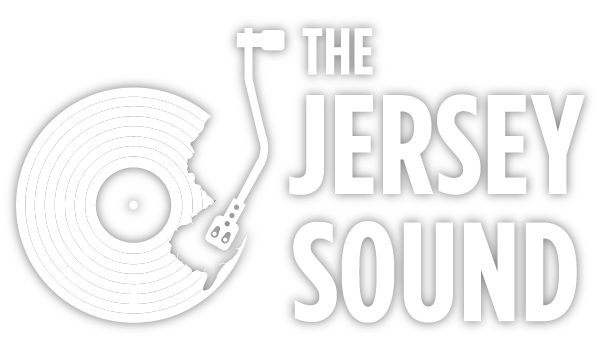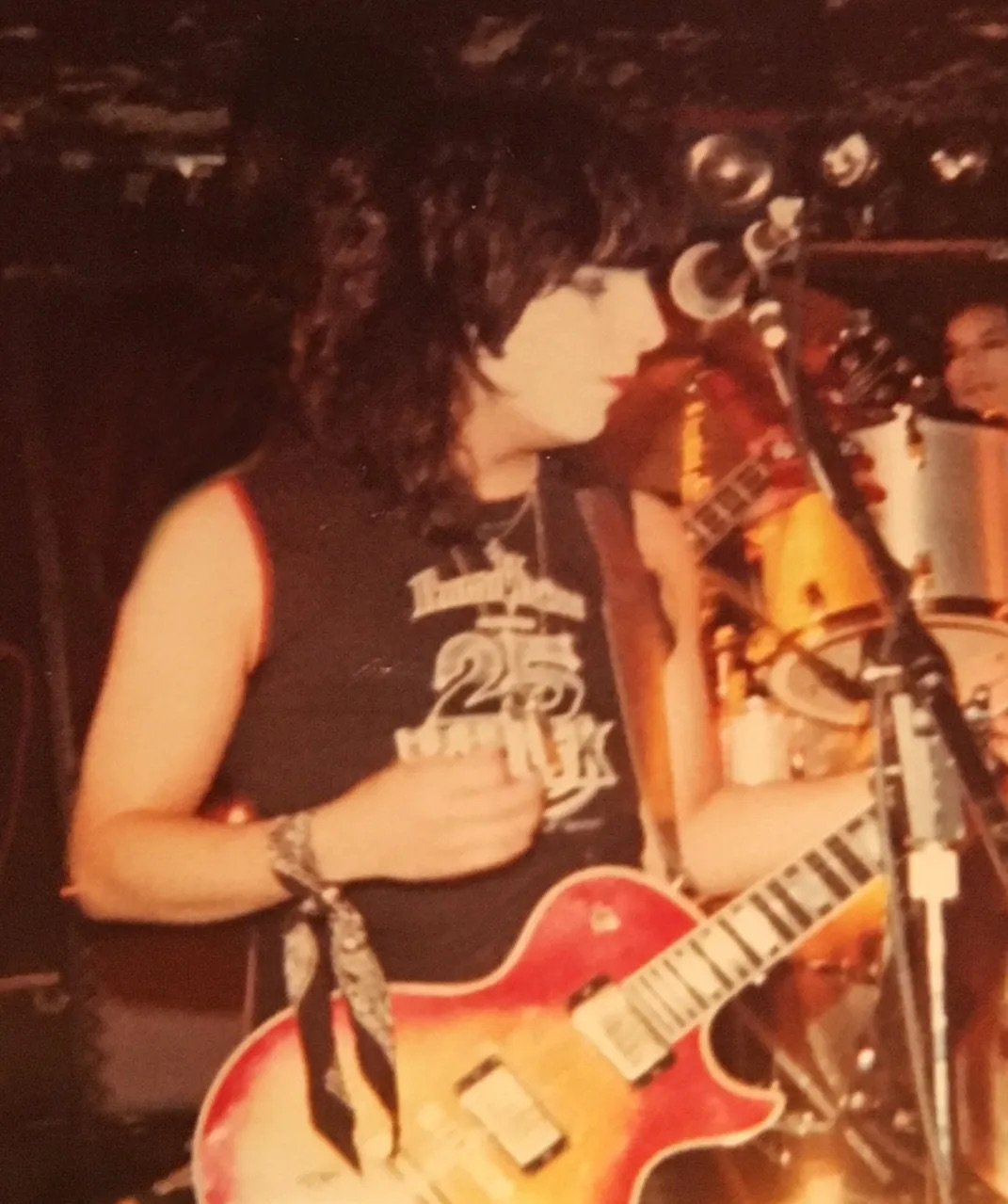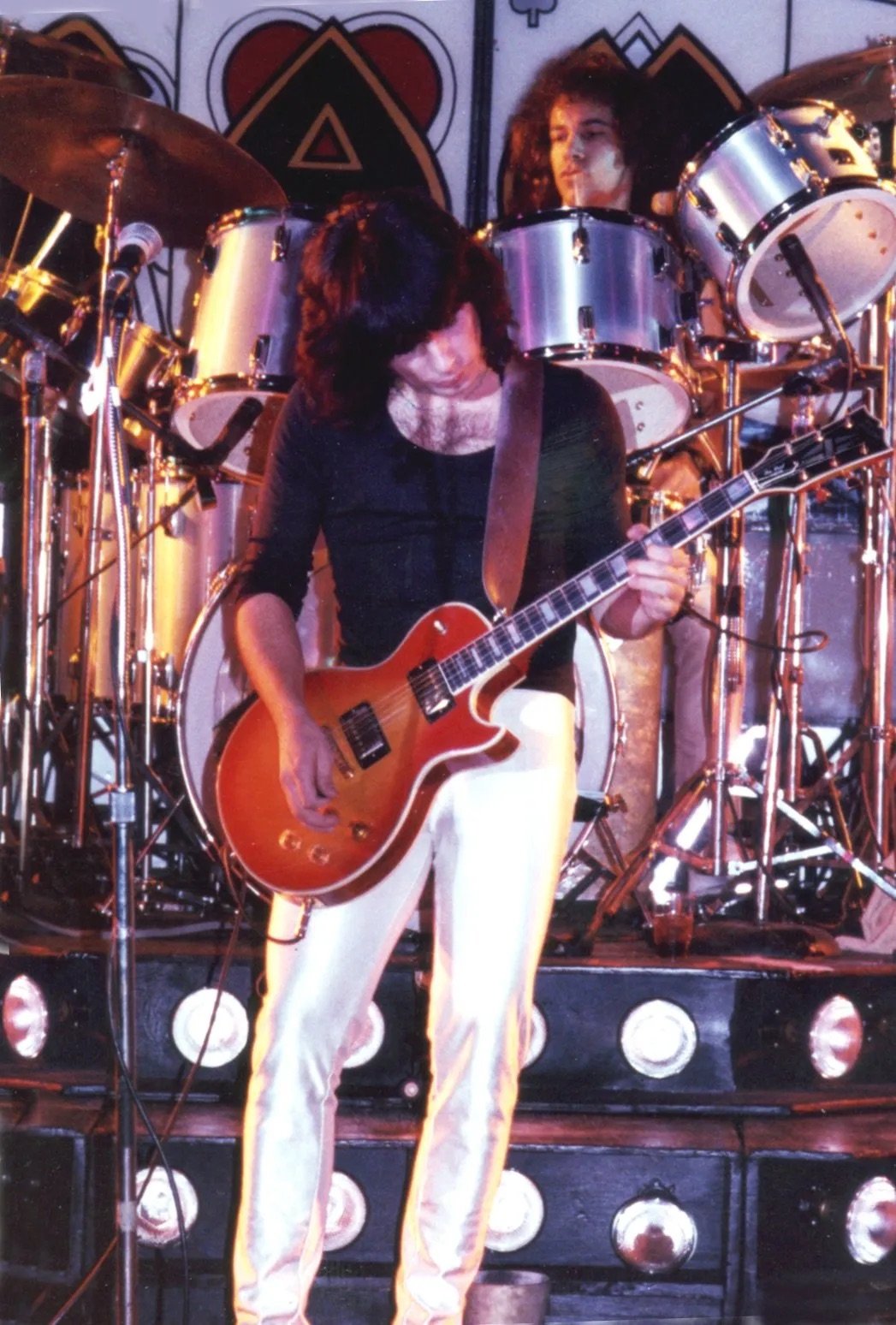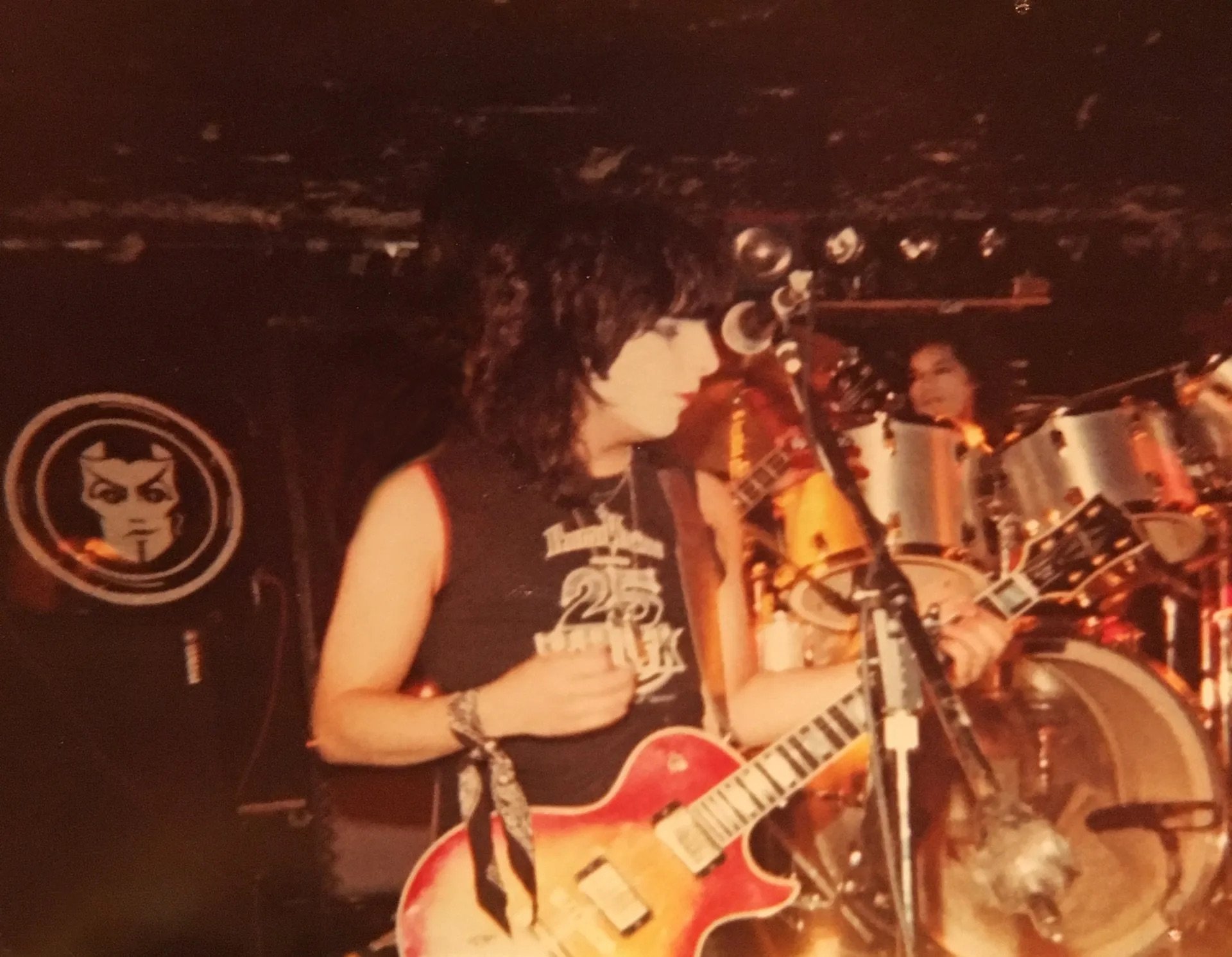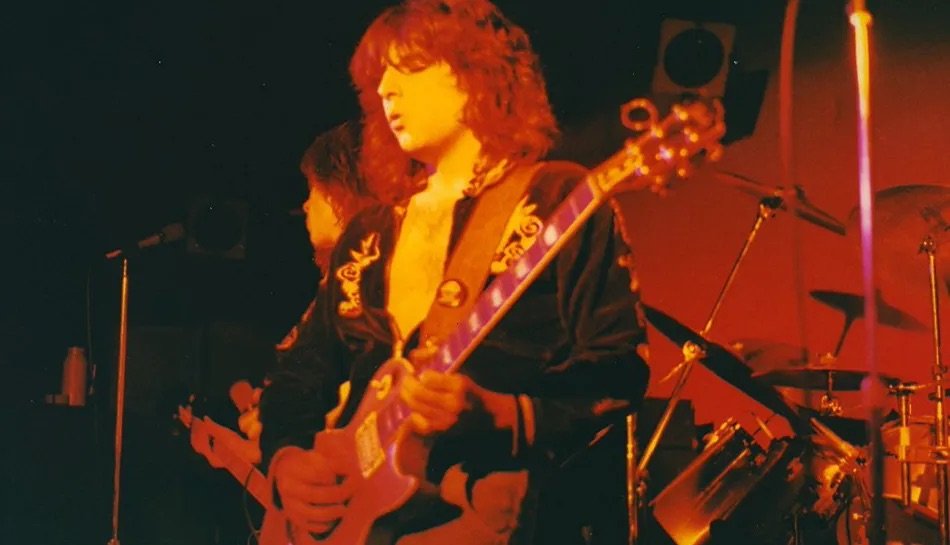Up-close with Nic Luciano
UP CLOSE
⭐️
Nic Luciano
⭐️
UP CLOSE ⭐️ Nic Luciano ⭐️
From Dreamer, The Game and Phantom’s Opera, Nic Luciano played the Jersey club scene five nights a week, three sets a night, everything from hard rock, almost-metal, prog-rock and Queen covers.
It started with Dreamer. As Nic says, it was “like a haphazard boy’s club. We learned quick every way NOT to get hired back at any club we ever played. That phase lasted about 18 months until we finally figured out just what it took to get rehired.”
Dreamer was decidedly on the Progressive Rock spectrum. No one else at the time was playing Sparks and Yes back-to-back. (“You couldn’t dance to us.”) They played Gentle Giant, Procol Harum, Peter Gabriel-era Genesis, Nick Gilder and Jethro Tull. “The more obscure, the more we liked it. It was showing we could do stuff other bands couldn’t do. Or, as it turned out, wouldn’t do because they wanted to work. Who did ‘White Punks On Dope’ by The Tubes? We would go see Godspeed, for instance, see what they were playing, and chat them up. They were doing all prog-rock. Nobody could touch them. They sounded just like King Crimson. Jeff Seitz, the drummer, was a monster. He was famous in Jersey and then went on to become the drum tech for Stewart Copeland of The Police.
“It’s actually pretty easy to be a successful club band if you’ve got the goods. Learn the ropes. Don’t be late. If you get a 20-minute break, make damn sure it’s 20 minutes and not a minute over. Go back on. Play music people can dance to. Dancing makes people want to drink. If they drink, they spend money. They’re happy. The bar owner is happy.”
“Rat Race Choir did Tull’s ‘Minstrel In The Gallery.’ They were from Long Island and they were huge. All prog. When they did Zeppelin, they didn’t do ‘Whole Lotta Love,’ they did ‘Ten Years Gone’ from Physical Grafitti.
Then Dreamer got an agent.
“We still did everything wrong,” remembers Nic. “We get to the club late. We’re not set up. No time for soundcheck. People are streaming in. We start arguing on stage about what to play.”
The agent, Sammy Boyd, a huge name when it comes to Jersey booking, gets them in as opener for the kingpins of the scene: T. Roth & Another Pretty Face, at TG’s in Greenwood Lake, NY.
“We get there. Nobody’s in the place. We set up. T. Roth must have been laughing his balls off watching us. People arrive. We play. The microphones are on. We’re arguing.”
“It’s actually pretty easy to be a successful club band if you’ve got the goods. Learn the ropes. Don’t be late. If you get a 20-minute break, make damn sure it’s 20 minutes and not a minute over. Go back on. Play music people can dance to. Dancing makes people want to drink. If they drink, they spend money. They’re happy. The bar owner is happy.”
”Don’t sweat the lousy gigs. You’re going to play some real dives before you play The Royal Manor. Nic likes to tell the tale of how they thought they were booked there but it turned out to be the Royal Motor Inn, “a real shit-hole in fucking nowhere on Route #9 for like seven people. Yet we still had to play as if every agent in town was in the crowd. You have to groom yourself and be ready. Half the time there was no crowd but the bartenders really liked us.”
Nic left Dreamer in 1980 after four arduous years. Then came The Game where he got intimate with the music of Queen. “Phantom’s Opera and White Tiger were big,” Nic remembers. “I was depressed after leaving Dreamer. That’s when drummer Richard Krauss and vocalist/keyboardist Jack Young left Phantom’s Opera, and asked me to play guitar in The Game. It lasted about a year. But what a year it was! We were professional. And it’s also when I started writing.”
Nic still writes. “What am I supposed to do? I could get a wind-up tin monkey and set up on a street corner with sunglasses. I’m writing and I still have some great friends from those days. It’s funny, but after you rehearse and rehearse, you finally get that one night where everybody’s got all their mistakes behind them and you play perfectly. That happened the first time I played L’Amour’s in Brooklyn with The Game. To us it was like the Roman Coliseum in Italy. It was huge. Packed. There had to be 1,500+ kids in there. Some people say it held 2,000. It happened again when I played there with Phantom’s Opera, a band I’d wanted to be in so bad and finally got my chance after The Game. I’d say the first time I played The Stone Pony in Asbury Park ranks up there as well. But it became routine. The grass is always greener, right? After a few years, we held down the Thursday night slot so it was no big deal. But that first time? Man!
“The Main Event was a beautiful club,” he continues. “We opened for Franke & The Knockouts when future Bon Jovi drummer Tico Torres was still in that band. We even got to share the stage with Twisted Sister in front of thousands. Then there was The Factory: one long stage, big enough for two bands to set up at the same time on different ends. Emmett’s in Jamesburg was good too. Middlesex County. Real Jersey crowd. They knew their shit. We played well but didn’t look as good. So we all started going out and getting better clothing.”
Aspiring bands now damn well better learn to act professionally, according to Nic. “Get a good PR machine. Cultivate a word-of-mouth following by using social media. Call up local papers and get your gig listed. When The Aquarian’s ‘Night Owl’ section started as a freebie in every club, that helped us immeasurably. And make sure you have a great lead singer. Phantom’s Opera had Joe Fog. There was nobody like him.
“And once you get there, stay there! Whether it’s drugs, egos, arguments or a mutiny, you work so hard, you think you’re golden, but when more and more people start hanging around, they will invariably tell one guy, `you’re better than the other guys,' or they’ll give you drugs to be your friend. Stay the course! Don’t get blindsided by all the bullshit. Sometimes it’s the girlfriends who fuck things up. Invariably, all these other forces start swirling around any successful band.”
